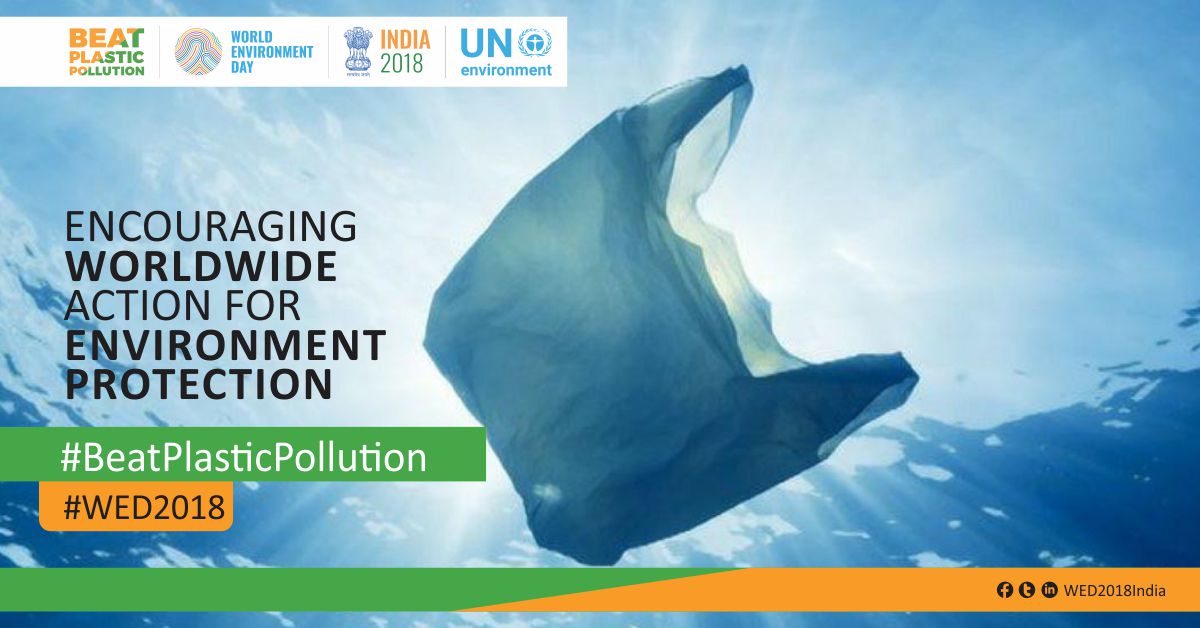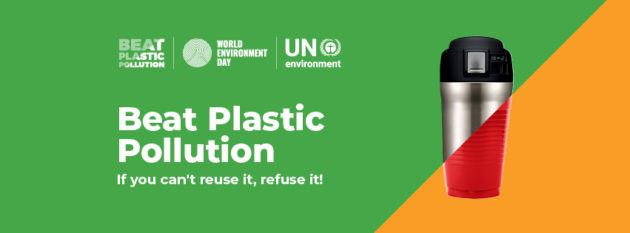World Environment Day 2018
Plastic Pollution: Dead Whales, Blocked Rivers
Plastic is used in many products we use daily, from plastic bottles to
plastic bags to carpets, containers, electronics, and so much more However,
a problem that comes with plastic is pollution. Many plastic products can
be used only once before ending up in the trash can as waste. Even worse,
these plastic products end up in our rivers and oceans. Since plastic does
not disintegrate, they float around for many years causing problems to
the surrounding natural environments.
Plastic Problems
Last month, a dead
sperm whale washed up on the shore of Spain. Necropsy results that were
released last week show that the whale did not have an ordinary diet. Instead
of the squid it normally eats, plastic bags, netting, and containers were
found in its belly. Sadly, its belly was filled with 64 pounds of plastic
waste! Because plastic cannot be digested, the whale’s digestive system
had burst. Unfortunately, marine animals and birds are the biggest victims
of our plastic use. Over in Indonesia, rivers have been clogged with plastic
waste. Plastic bags, bottles, and styrofoam packaging have clumped up together
in a pile so large that it looks like an iceberg of plastic. In fact, the
problem is so huge that the President of Indonesia called in the army to
clean up the waste. Soldiers are now working to remove the plastic, using
nets to pull waste out of the river. However, this only works partially
because as they remove some plastic, more waste keeps floating upstream.
Taking Action
Companies have started to cut down their amount of plastic
use. In fact, on April 26, over 40 companies have pledged to eliminate
all single-use packaging in the United Kingdom. By signing the UK Plastics
Pact, they aim to make all their plastic products recyclable, reusable,
or compostable. Many countries have been placing bans or limits on the
use of plastic bags. Starting with Denmark in 1993 and then spreading to
all corners of the globe, taxes are placed on plastic bags to encourage
buyers to not use them. Unfortunately, many consumers are not satisfied
with these restrictions, as plastic bags are very convenient to use. Meanwhile,
many restaurants across the globe are banning the use of plastic straws,
stirrers, etc. especially in beach cities where the straws usually end
up in the ocean nearby. Taiwan plans to place a ban on single-use plastic
cups and straws by 2030. The United Kingdom plans to ban straws, stirrers,
and Q-tips as early as next year. It won’t be long before many other countries
follow suit.
Can This Enzyme Help?
Unfortunately, plastics take a long
time to break down, so finding a way to decompose them naturally is not
easy. In a waste recycling center in Japan, scientists had been studying
microbes known as Ideonella sakaiensis. This bacteria can naturally eat
away at plastic and decompose it by breaking apart the plastic bonds. The
microbe can digest PET plastics or polyethylene terephthalate, mainly found
in plastic water bottles.
Recently, scientists luckily came across a mutant
enzyme that helps speed up the process, making it 20 percent more efficient.
Unlike the original microbe, this mutant also can now break down another
plastic known as PEF, or polyethylene terephthalate. Scientists are now
working to improve this enzyme even further in order to solve the global
problem with plastic.
However, we can help solve the problem as consumers.
Avoid using single-use plastic products, but if you do, do not just throw
them away as litter. Join efforts to clean up the beaches, rivers, and
even streets. Find a way to reuse, reduce, and recycle to produce less
waste. Do your part, and the world will be one step closer to solving the
plastic pollution.


